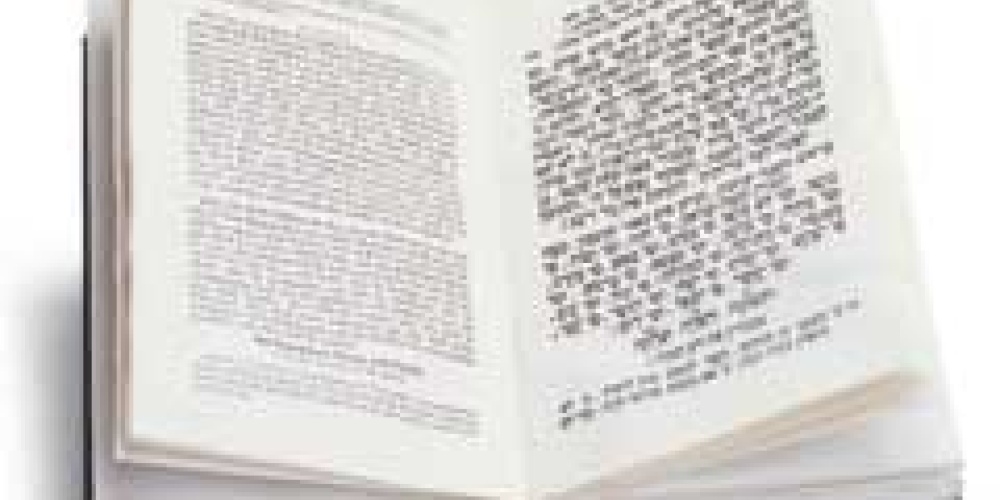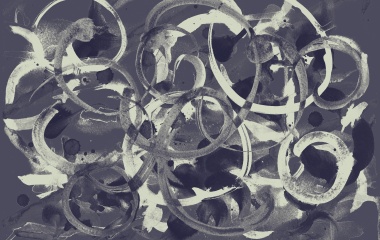
"At four times the world is judged: On Pesach for produce; on Shavuot for the fruit of the tree; on Rosh Hashanah, all who come into the world pass before Him like the children of Maron, as it says, 'He creates the hearts of them all, and discerns all of their deeds' (Tehillim 33:15); and on the holiday [Sukkot], we are judged for on water" (Rosh Hashanah 16a).
Rosh Hashanah is the Yom HaDin, the Day of Judgment, a theme that runs throughout the machzor. Yet not unlike--say, Shavuot, where no mention is made in the Torah that it is the day we received the Torah[1]--there is no explicit Biblical source that links Rosh Hashanah with judgment. Thus, we should not be surprised when the Gemara asks: "According to whom is our Mishnah? Not Rabbi Meir, and not Rabbi Yehuda, and not Rabbi Yossi, and not Rabbi Natan." The Gemara explains that each of these Sages disagreed with the notion that man is judged (only) on Rosh Hashanah. While all took it as a given that man is judged--a life without accountability is a meaningless life--they did not necessarily agree with the timing as given in our Mishnah. In fact, Rabbi Yossi and Rabbi Natan saw no connection at all between Rosh Hashanah and judgment[2]. Rabbi Yossi claims that man is judged daily, whereas Rabbi Natan goes one step further, arguing that "man is judged at every moment". To them, Rosh Hashanah was a day on which to blow shofar--no more and no less. "And on the first day of the seventh month, there shall be rest, a day of blowing; it should be for you" (Vayikra 23:24).
The Gemara answers that our Mishnah follows the teaching of the school of Rabbi Yishmael that judgment is a process that begins on Rosh Hashanah and ends on Yom Kippur; a notion we are most familiar with from the haunting words of Unetaneh tokef: "On Rosh Hashanah it is written, and on Yom Kippur it is sealed, who shall live and who shall die". Yet if such is the case, then the Gemara wonders, "According to whom do we pray today for the sick and ailing?" With judgment for the upcoming year having been sealed on Yom Kippur prior, our prayers mean little for the immediate concerns of the day. Praying today can only help for next year, leaving the sick to rely on the prayers of last year. To this theological dilemma, the Gemara responds with three succinct words: "k'man? K'Rav Yossi, According to whom [do we pray]? According to Rav Yossi". Amazing! According to the majority view, once Yom Kippur ends, we are praying for next year; this year is signed, sealed, and delivered. There seems to be little reason to say a Mi Sheberach for the sick of this year.
The second answer the Gemara offers is even more striking. "It is good for man to cry out, whether before or after the judgment is rendered". It may be too late to pray for this year[3], but that does not mean that prayer has no immediate benefit. While the primary function of prayer is petitional--the Ramban rules that one who has no immediate needs need not pray--there are tremendous 'side benefits' to prayer. Prayer, at the very least, (should) sharpens our focus on the essentials of life, raises our awareness of our dependence on G-d, acknowledges the blessings we have received, allows time for reflection, and sensitizes us to the needs of others. It is good for man to cry out to G-d--even if our prayers cannot be answered now.
Embedded in this Talmudic discussion is the importance of constant vigilance and a healthy faith in G-d. What we do today might have little impact now--but it may have a huge impact later, long after we have forgotten our actions of yesterday. It is good for man to cry out to G-d--both for today and for the future.
[1] In fact, we may not have received the Torah on Shavuot; and even if we did, that covenant was broken and only reestablished on Yom Kippur. For one small perspective as to why we then celebrate Shavuot as the day of receiving the Torah, see here.
[2] While Rabbi Meir and Rabbi Yehuda agreed that Rosh Hashanah is a day of judgment, they held that only partial judgment was rendered on that day--our Mishnah implies complete judgment on that day.
[3] In case some find this rather surprising (and no doubt it is), stay tuned for a future Daily Daf where, PG, we will discuss possible exceptions to the above.



